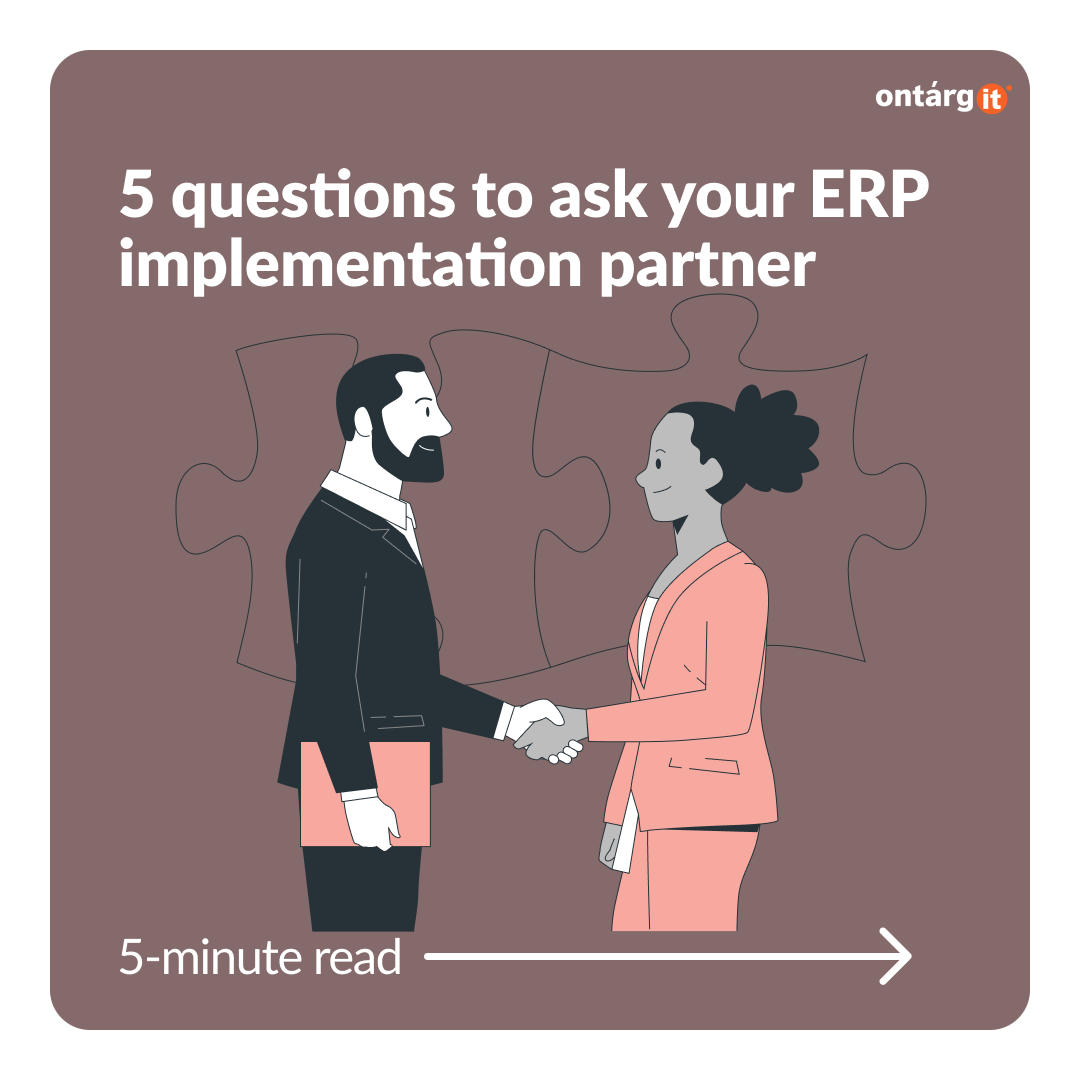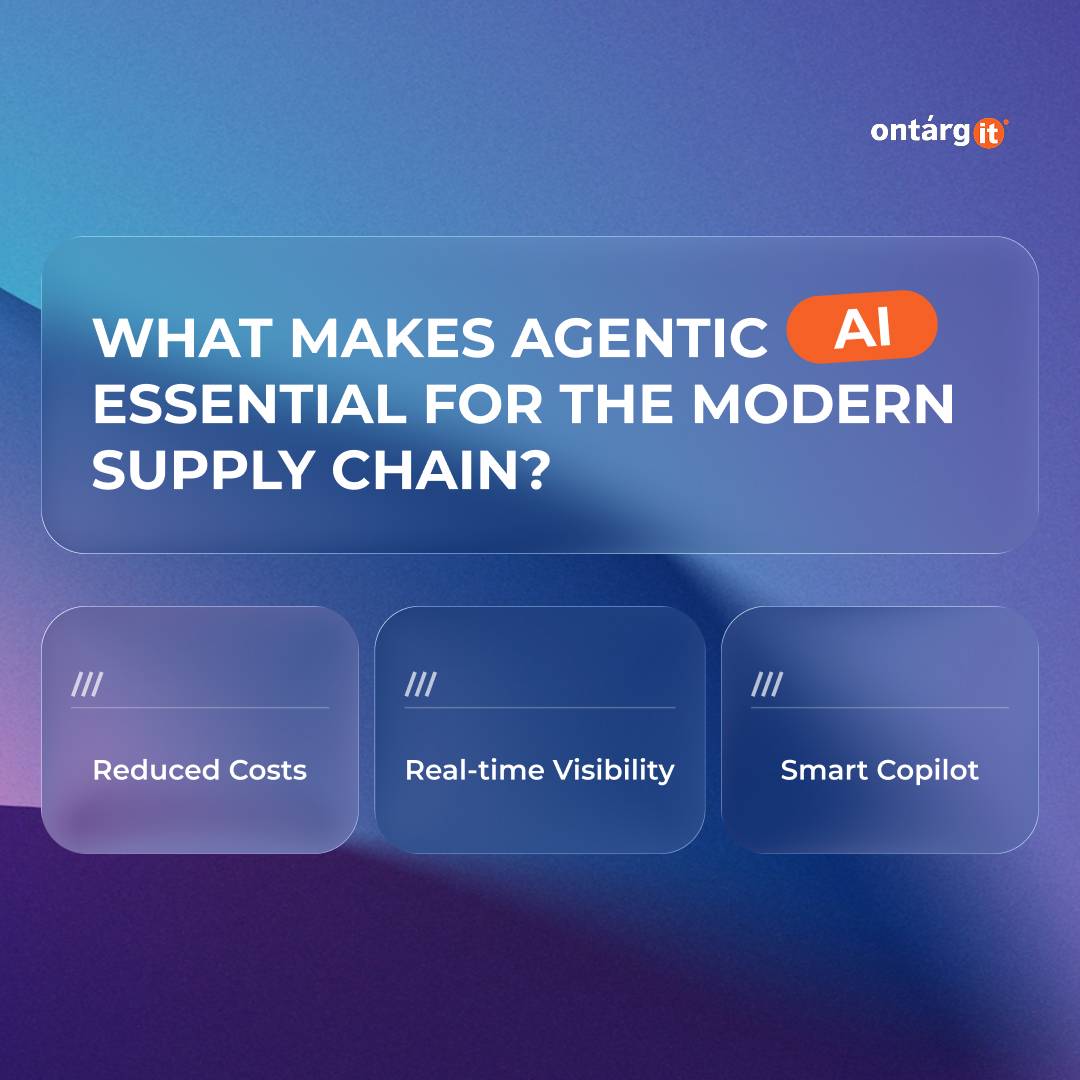Your choice of project partner can greatly affect the project delivery outcome.
The right ERP implementation partner expertly manages the project, delivering a system that helps your business grow. A poor choice may make you struggle through the project, causing disruptions and costing you money.
Your business management systems are key for your future. So, don’t shy away from asking tough questions. Your future counts on it.
When evaluating potential tech partners, it’s important to ask both standard and thought-provoking questions. While most partners will have prepared answers for basic inquiries about cost, experience, and project methods, asking deeper questions can reveal more about their business practices and commitment to client success.
A truly great tech partner will welcome tough questions and involve their services team to provide you with complete, honest answers. They’ll also be eager to share what sets them apart from other potential partners.
What's your plan for handling change and training?
Changes can be tough
For a successful ERP project, you need lots of change. Your ERP implementation partner should be an expert in managing change with a plan from the very start to prepare your team.
Get ready for pushback
People naturally dislike change, and sometimes they may actively try to ruin the project. Starting open communication lines before the project starts is important.
Start discussing the change before it happens, making everyone feel part of the process. Ask for improvement ideas for current processes from the people who do the work.
Use a step-by-step approach
Talk with your partner about breaking the project into smaller parts to reduce disruption and help employees get used to the new system gradually. With your partner, you can decide your priorities and solve the most critical problems first.
Training is crucial
A good training plan offers help before, during, and after the ERP project. The plan should cater to different ways people learn to make sure no worker is left out. On-demand training lets motivated people learn as much as they want, but some employees will need more support.
How do we decide and track success?
Before starting an ERP project, your company should know what outcome to expect. From the beginning, your partner should focus on how the ERP system will help you reach those goals.
Track the transformation
An ERP project should change your company for the better, making it easier for you to reach your goals. Whether it’s expanding to new areas, adding product lines, or boosting productivity, your goals should be clear and trackable.
Clearly outline success measurements
For each project goal, your ERP implementation partner should provide Key Performance Indicators (KPIs) that let you track progress. KPIs should be tracked throughout your ERP project and, more importantly, give ongoing feedback on company progress.
Each function’s goals can help with accountability and progress. Here are a few examples of goals and related metrics:
There might be specific KPIs related to your industry that you need to track. Your partner should know these and guide you in deciding on the important metrics to monitor.
How will you pick people for our project?
Project success is determined by the people doing the work, not the ones selling the services. The ERP implementation partner team may include the project manager, solution architect, engagement manager, and consultants. Ask your potential partner if they’ll pick people based on expertise related to your business needs. Your partner should be willing to share short summaries of your project team members.
Specialists with soft skills
While professional skills are important for your ERP project’s success, team and people skills matter just as much. Each team member should bring expertise and people skills to the project. They should understand basic business functions, including financial, sales, and operational workflows.
At least some team members should know your industry well. They should understand industry requirements and give good practice recommendations. Depending on your project needs, your team should include (or have access to) special experts.
Whether it’s tech, development, or data analytics, ask if the experts your project needs will be available when required. Training and change know-how is important too. The project team should aim to make your workers comfortable and independent of the new system. They should be good at managing organizational change to help users adopt and accept the project.
How do you handle customizations?
Standard ERP functionality is designed to support common business processes. But quite often companies have unique processes and their needs that aren’t “standard.” There are often ISV (Independent Software Vendor) solutions to fill gaps or offer industry-specific functions, but sometimes you need custom code. Your partner should be ready to talk about potential customizations and how you’ll work together to find the best solution.
Industry know-how
Your partner’s industry know-how can greatly affect your project’s success. If your partner has extensive experience in your industry, they’ll know the ERP system’s strengths and weaknesses for your business. They’ll know the ISV solutions that can bridge gaps, and they’ll understand what customizations may be necessary.
Decide the best way forward
During the requirements analysis phase of your project, your project team will identify any suggested or required customizations. Your partner should have a plan for how you’ll evaluate options and choose the right way forward.
How often do you go over budget on projects?
There are many reasons why a project can exceed its budget. Sometimes the project expands to cover more than what was initially proposed (scope creep). There might be projects where unexpected issues arise, like a surprise business process or integration requirement that can only be solved by customization. Or the proposal might underestimate the training and change management users need. Your partner should tell you how often their projects exceed budget and what they do when it happens.
Clear process and project plan
Your partner should have a detailed implementation process that outlines how the project will be managed. Often, your partner won’t be able to provide a final project budget until the requirements analysis phase is over. Once your budget is set, a timetable and project plan should guide what your team needs to do to complete the project on time.
Proactive project management
The partner’s project manager’s main job is to keep everyone on track, including your team. The project manager should work ahead of time to ensure you understand the resources needed to finish each project phase on time. They should communicate often and actively with your project team, providing regular updates on project progress and any potential challenges to on-time, on-budget completion.
Change orders
There might be times during your project when a change order is needed. This is a documented, clear addition to the original plan. Your partner should be ready to explain how that process will work if needed.
Technology is always changing, and your business has grown and evolved since you first implemented your current system. Sticking with an outdated system could hold you back in ways you don’t realize yet — costing you time, money, and opportunities.
To move forward, you need dependable, scalable, and secure solutions like Microsoft Dynamics 365 and Power BI, along with OntargIT specialized expertise and services.
It’s time to break through the limits of your current tech to not just compete – but to win. You need the right ERP implementation partner who understands your industry and the technology driving it now – and in the future.
Book a free consultation with OntargIT to stay competitive and thrive in today’s fast-paced digital landscape.

















